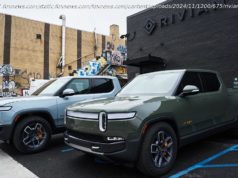BI’s Workforce Innovation Board discusses how DEI can innovate by tapping artificial intelligence and focusing on outcomes.
Diversity, equity, and inclusion programs have become the subject of a heated, politicized debate over the past few years.
Several major corporations, including John Deere, Microsoft, and Molson Coors, have made headlines recently for rolling back their DEI initiatives.
Meanwhile, Walmart, the world’s largest retailer, announced it would no longer use the acronym in its communications and would not extend its Center for Racial Equity, a nonprofit established in 2020 with a five-year, $100 million commitment to address racial disparities.
Even so, as we’ve reported in this series, many companies remain committed to the values of DEI — but are shifting their strategies for a new era. Whatever the motivation of the companies, it’s clear that DEI is undergoing a period of change.
Business Insider asked its Workforce Innovation board to participate in a roundtable to discuss how DEI programs are evolving. We wanted to find out what structural changes are happening, how companies can continue to build trust with employees, and what role artificial intelligence is poised to play.
The consensus around the virtual table was that the focus of the DEI story is shifting to business outcomes and the skills needed to achieve them. « We can’t do it the old way », Purvi Tailor, the vice president of human resources at Ferring Pharmaceuticals, said. « We have to have the conversation in a new way. It becomes much more about inclusion and changing mindsets and creating awareness about your own biases. »
Skills-based hiring is one way companies are working to identify diverse candidates organically. « Let’s focus on the skills that are required for the future of work and what we are looking for from leaders in our company », Maggie Hulce, the chief revenue officer at Indeed, said. « And then be more consistent in the application of holding that bar. »
By homing in on the skills organizations need to succeed and how to use AI tools to help surface in-house talent, companies could move the DEI story away from conflicts and focus on its benefits.
« It dismisses this notion that you have to lower the bar if you want diversity in your organization », said Spring Lacy, the global head of talent acquisition and DEI at Verizon. « We’ve got lots of super smart, super skilled people of color, women, people with disabilities, LGBTQI community, who just aren’t seen for all of the biases that you talked about. You don’t have to lower the bar. »
Roundtable participants included:
Anant Adya, executive vice president, service offering head, and head of Americas Delivery, Infosys
Lucrecia Borgonovo, chief talent and organizational effectiveness officer, Mastercard
Chris Deri, president, Weber Shandwick Collective
Maggie Hulce, chief revenue officer, Indeed
Spring Lacy, vice president, chief talent acquisition and diversity officer, Verizon
Purvi Tailor, vice president of human resources, Ferring Pharmaceuticals USA
Here are six key takeaways from the discussion.Skills-based hiring, supercharged with AI tools, helps companies find ‘hidden figures’
Skills-based hiring is a strategy that some companies are using to identify candidates and reduce bias in the hiring process. The approach focuses on the skills needed to fulfill the role, minimizing qualifications like college degrees or previous job titles.
With artificial intelligence, talent leaders can accelerate the hiring process and uncover strong candidates within their companies that they might have missed before.
Lacy, who was previously an HR leader at Prudential, said AI is empowering existing employees to showcase their abilities more effectively.
« When went to recruit internally, and we pulled people based on the skills profile and not based on proximity bias or any other bias, our slates were inherently more diverse », Lacy said.
The critical piece for companies is to figure out the best way to capture an accurate and comprehensive view of employees’ skills.
Verizon uses the Workday HR platform and is piloting a program with its partner company, Censia, that uses an AI tool to help employees craft their profiles.
Home
United States
USA — Science 6 ways DEI programs are evolving as companies reorganize, home in on...






